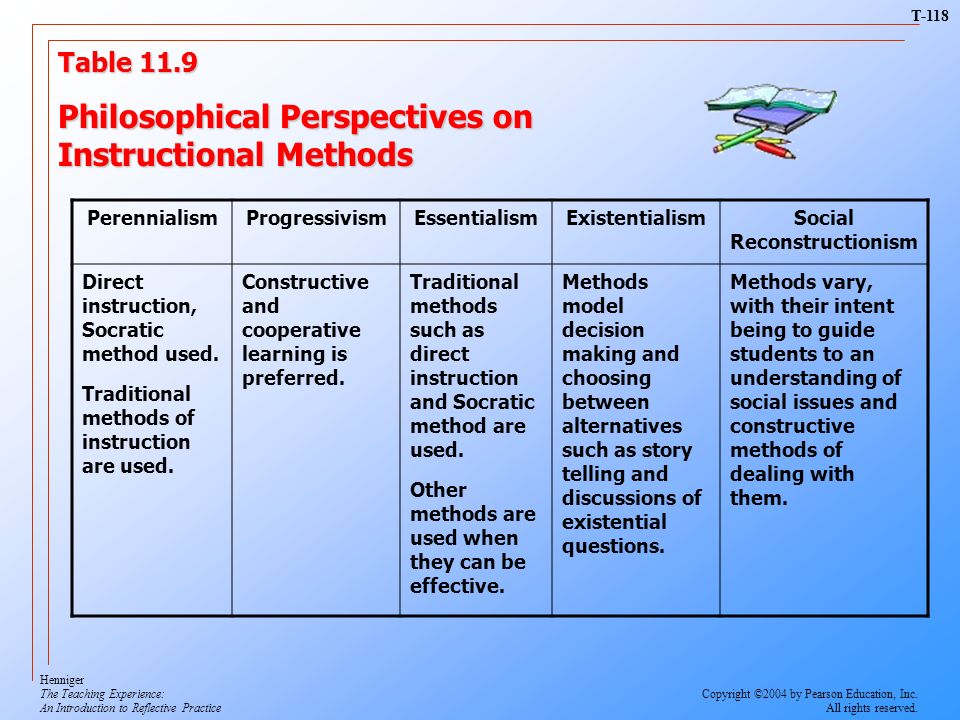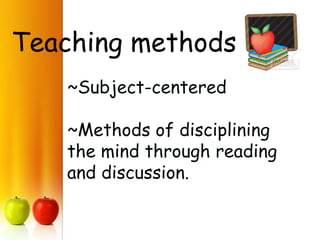Perennialism is a philosophy of education that emphasizes the importance of timeless, universal truths and ideas. According to this perspective, the goal of education is to transmit these eternal truths to future generations and to help students develop the critical thinking skills necessary to understand and appreciate them.
One of the central tenets of perennialism is the belief that certain subjects, such as mathematics, science, and literature, are fundamental to a well-rounded education. These subjects are seen as essential because they provide a foundation for understanding the world and the human experience. As a result, perennialists believe that students should be exposed to these subjects early on in their education and that they should be given the opportunity to study them in depth.
To facilitate this process, perennialists often use a variety of teaching methods that are designed to engage students and encourage them to think critically about the material they are learning. These methods may include lectures, discussions, debates, and problem-based learning activities.
Perennialists also place a strong emphasis on the role of the teacher in the education process. They believe that teachers should be well-trained and knowledgeable about the subjects they are teaching, and that they should serve as mentors and guides for their students. In order to foster a love of learning and a desire for knowledge, teachers should also be passionate about the material they are teaching and should strive to make the learning experience enjoyable and meaningful for their students.
Overall, the goal of perennialism is to help students develop a deep understanding of the timeless truths and ideas that form the foundation of human knowledge. By providing a well-rounded education that exposes students to a variety of subjects and encourages them to think critically, perennialists believe that students will be better prepared to navigate the complexities of the modern world and to contribute to the betterment of society.
Perennialism: A Lesson Plan

While there is no one right way to teach perennialism, a good lesson plan would incorporate some of the following elements: -Encourage students to ask big questions and think deeply about the answers -Teach students how to find and evaluate sources of information -Help students understand that there are multiple ways to view any issue -Encourage students to think creatively and to find connections between different ideas -Challenge students to apply what they have learned to new situations Perennialism can be a difficult philosophy to teach, as it goes against many of the traditional methods of education. Perennialists believe that education should be based on the study of these great works, and that students should learn to think critically and independently. Schools provide the opportunity to impart knowledge and skills in both academics and the workplace. Let's look closer at perennialism and how Sita might use it in her curriculum planning. Further, the canon of books known as the classics form a key component of perennialist education, since they have the potential to solve problems in any era, and they are engaged in a Great Conversation with each other. This book inspired the school model referred to as the Paideia program, which has been, and still is, implemented by hundreds of schools in the United States.
BENDEBEL_blog.sigma-systems.com
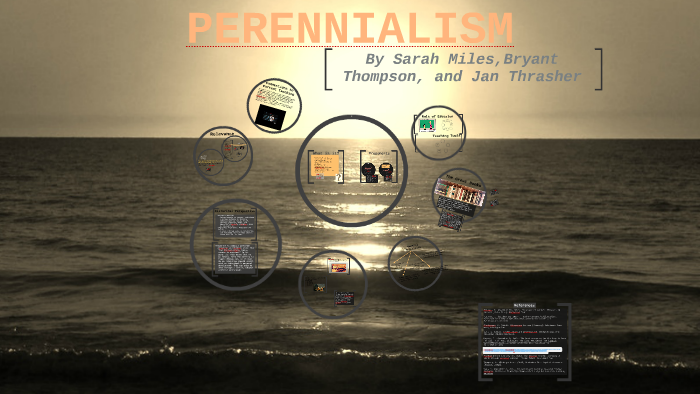
The practice of perennialism must be promoted in all schools, and it is a valuable philosophy. Newfangled concepts might add something to the curriculum, but they may not. The Relevance Of Perennialism In recent years, a theory of education known as perennialism has gained popularity. A perennialist is someone who advocates for a philosophy or education based on a certain set of principles. These self-evident truths open, for the perennialist, a whole realm of truth that cannot be reached by science. It is used to comprehend and define the realities of the world around us.
The Importance Of Perennialism In Education
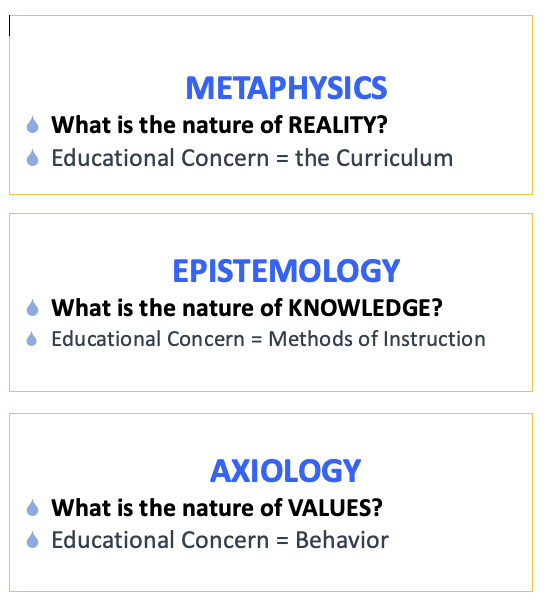
One advantage is that perennialism allows for the development of deep understanding and knowledge of a subject. Students cannot always think of the future. Under God: Religious Faith and Liberal Democracy by Michael J. For Augustine, reason was subservient to religious dogma and the material and practical aspect of life were to play only a minor role as compared with the spiritual aspects. The principles must be adapted to meet the varying needs of different contexts in order for them to be effective in intelligent application, according to Adler. In contrast to biennials, which lack woody stems, they are frequently characterized as herbivorous.
Perennialism: Everything You Need to Know
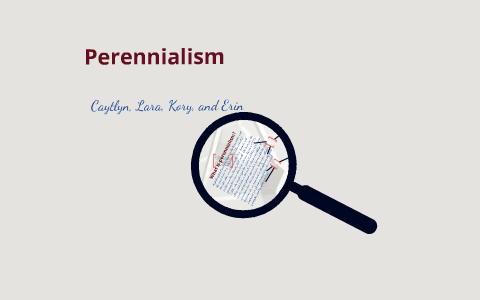
Bible also describes God as being in three persons: the Father, Son and Holy Spirit. A self-evident truth is always an analytic statement or one that contains its predicate in its predicate in its subject. Reconstructionist educators focus on a curriculum that highlights social reform as the aim of education. If they were absolute and accurate guides to knowledge and Truth then surely the advocates of other position would long since have been convinced of the futility and error of their positions, and would have been become either lay or ecclesiastical perennialists. The use of formal and informal learning methods is one of the ways in which philosophy skills are developed. Historically, this philosophy reflects the views of Plato and Aristotle. In this paper, we will look at how progressivism in education affects Philippine education.
Perennialism in Education

Perennialist teachers support students to participate in the Great Conversation, which is a dialogue that takes place within classical works and that transcends time. It is a way of life that many find fulfilling and insightful in the seemingly chaotic and ever-changing world we live in. These beliefs will form the basis of your ever-evolving philosophy of education. In philosophy, perennialism is also important because it gives a different perspective on the world than traditional perspectives. Schools should be taught from a position of eternal value in order to provide students with an environment in which to grow. The six key philosophies of education that will be explored in this text are: Perennialism, Progressivism, Behaviorism, Essentialism, Social Reconstructionism, and Postmodernism.
Chapter 5: Perennialism
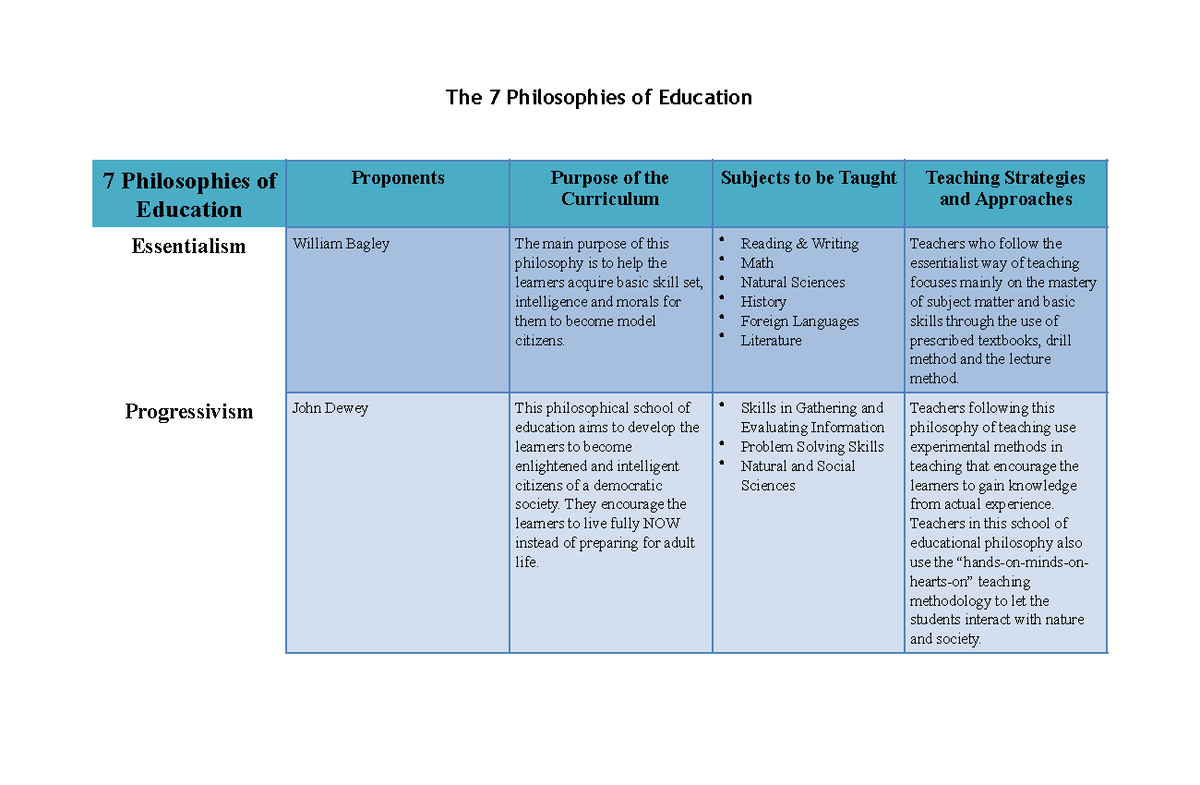
Some ideas have lasted centuries and are still relevant today, according to the book. Understanding the teachings of different religions in this manner will assist students in becoming more fully aware of their beliefs. The History of Progressivism in Education Xplo course is an important course to understand progressivism in education. It does not comprise, for instance, the mixing of Dhikr in Islam, with Buddhist meditations and the occassional going to Church Particular attention is paid to their impact on science education. The truth everywhere is the same. The two types of education are not mutually exclusive, however.





